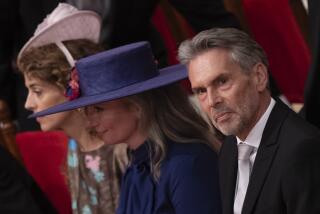The Netherlands lands a blow to the Afghanistan coalition
- Share via
The Netherlands has become the first NATO ally to announce that it is quitting the fight in Afghanistan, following the collapse of the center-right government over its involvement in the U.S.-led war against the Taliban. The decision by the Dutch to pull their nearly 2,000 troops does not bode well for President Obama, who has been struggling since autumn to get Europe to increase its troop commitments. On the contrary, the administration should worry that the Dutch move will prompt other governments to reconsider their support for an unpopular war.
Europe has been grappling with Islamic extremism, including the 2004 killing in Holland of filmmaker Theo Van Gogh by a Dutch Moroccan radical, and attacks in Britain and Spain organized in South Asia. Still, most Europeans view the war in Afghanistan as a U.S. campaign that is not necessarily in their interests.
Recent polls show that majorities in most NATO countries support withdrawal, and the fall of the Christian Democrat-led government in the Netherlands is likely to make other leaders more cautious. Prime Minister Jan Peter Balkenende lost his Labor coalition partner when he tried to extend the country’s commitment in Oruzgan province beyond a previously agreed upon August pullout. Twenty-one Dutch soldiers have died in Afghanistan, and the war is seen as too costly at a time of financial crisis.
The timing of the Dutch announcement is unfortunate for Obama. It comes during an assault on the Taliban stronghold of Marja in Helmand province, where NATO and Afghan troops are trying to persuade civilians to back the central government in Kabul. Dutch troops are not part of that offensive, but their withdrawal is likely to raise concerns about a fracturing of the international commitment to Afghanistan, and about the Afghan government’s ability to provide security in the long term. Certainly the Taliban will spin it that way to counter the momentum the U.S. government was building with the arrest of Taliban commander Mullah Abdul Ghani Baradar. After all, this battle is as much about perceptions as it is about troop strength.
The Dutch decision should serve as a warning to the Obama administration. If it is to keep the backing of France, Germany and other allies, it is going to have to do a better job of persuading their publics not only that the war can diminish the Taliban insurgency and its Al Qaeda allies, but that Europe stands to gain from its participation and not simply suffer repercussions for it. This page has expressed more hope than conviction in Obama’s decision to deploy tens of thousands more troops while trying to build up the Afghan military and government before a U.S. pullout begins in July 2011. Obama was right when he said it wouldn’t be easy. Without broad international help, it is quite likely impossible.
More to Read
Sign up for Essential California
The most important California stories and recommendations in your inbox every morning.
You may occasionally receive promotional content from the Los Angeles Times.












